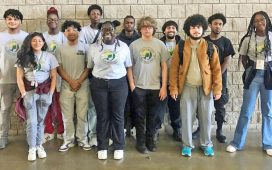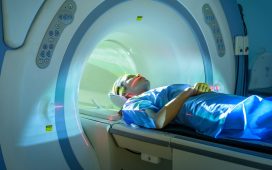In January, London will begin the world’s first human challenge trial, the Financial Times reported. The trial will be run by hVivo, a spinout from Queen Mary University of London that was bought earlier this year by a Dublin-based pharmaceutical research organisation, while Imperial College London is the academic partner. Participants will be vaccinated with a candidate vaccine and then wilfully exposed to novel coronavirus (SARS-CoV-2) a month or so later. Over 38,000 people from 166 countries have already volunteered to participate in such studies.
Human challenge trials have been performed safely in tens of thousands of people in the last 50 years and have helped accelerate the development of vaccines against typhoid and cholera. Such a study was also conducted for Zika virus. The yellow fever experiments conducted in the early 1900s helped prove that mosquitoes transmit the virus causing yellow fever. The human-challenge studies have generally been used for testing less deadly diseases such as influenza, dengue, typhoid, cholera and malaria.
In May the WHO approved human challenge trials and NIH too is developing two viral strains through Colorado State University that can be used in human challenge trials.
Dr. Gagandeep Kang, Professor of Microbiology at CMC Vellore in an email to The Hindu explains why despite the many challenges it is worthwhile conducting human challenge trials for SARS-CoV-2.
At a time when nearly six vaccines are already in a Phase-3 trial stage, and when the virus is spreading wildly in many countries, including India, what specific advantage will come by carrying out a human challenge trial?
Testing of a vaccine is one reason to do human challenge studies, but not the only reason. Frequently, studies are done to understand infection and disease — one such example is of the norovirus infection studies, where human infection was the only way to study the disease for 30 years, since there were no animal models. In the case of SARS-CoV-2, there are many things we do not understand about the virus, the infectious dose, the kinetics of the immune response, susceptibility to disease and correlates of protection, which we could learn from human challenge, and that would help us design better treatments and vaccines than we can now.
Though a less virulent strain will be used for such a trial, what measures will be taken to ensure that the developed strain causes only mild infection/disease?
At the moment, I have no idea how anyone will ensure that the strain will be less virulent. The circulating SARS-CoV-2 causes a significant proportion of asymptomatic infections, and you cannot be milder than that. The mild infection/disease seems, in current understanding, to depend more on the host than on the virus.
I was part of a group that helped develop the ethics guidance for human challenge studies with WHO, and our thinking was that the highest bar for safety in the absence of a definitive treatment, would be to include only young healthy people who have a minimal chance of developing severe disease, but recognise that minimal does not mean zero.
Many published studies and experiences in many countries show that even young, healthy people can suffer from severe disease that requires hospitalisation and many may even die. Many studies also show that recovered patients suffer from complications of the heart and lungs. So how safe is it to test a vaccine even in a young population?
Absolutely, we know that with SARS-CoV-2 even though severe disease and complications are very rare in young people they do occur, so there is no question that there is a risk of severe disease and even death. So the question is should we wait until we have a definitive treatment — like the anti-malarials that are used in the controlled human malaria model that is now almost a requirement for all malaria vaccine candidates?
On the other hand, we know that with influenza infections, even healthy people have a risk of viral myocarditis, and yet we have many countries that have established influenza human challenge studies.
The risks may be small but they exist, the benefits are not to the person who participates in the study (unless by participating they get the vaccine ahead of others) but really are benefits to society. This is a challenge, and ethicists and vaccinologists have argued both for and against doing human challenge with SARS-CoV-2. There are apparently tens of thousands of people who have come forward to say that they want to participate in such studies for the good of society, so we could equally ask, should we stop them from contributing as long as they understand the risks and investigators make sure that the highest quality clinical care is provided?
Can a human challenge trial that only studies young, healthy participants be representative of the older population and those with comorbidities who are at grave risk of developing serious disease and even die?
No, no CHIM [controlled human infection model] study represents every facet of infection or illness in the human population. Similarly, no clinical trial is representative of populations not included in the trial — this is why we know so little about safety of drugs in pregnancy!
Can a trial carried out in a few hundred participants be sufficient to know the safety and efficacy of the vaccine? If a human challenge trial is only to select the best vaccines that progress to a larger, conventional Phase-3 trial, can the normal trial process not achieve the same objective without subjecting participants to unknown risks?
As above, CHIMs are not done only for evaluation of vaccines, and certainly do not replace Phase-3 efficacy studies. If a CHIM is used for down-selection, you will be progressing a vaccine or not based on a few hundred people in a short time frame, whereas taking the same candidate to a full Phase-3 will require, given the size of current trials, at least 30,000 people, who may participate in a trial for a vaccine that may or may not work.
Remdesivir is to be used as a ‘rescue remedy’ to prevent participants from progressing to serious illness. But has remdesivir shown substantial mortality benefit to be called a ‘rescue remedy’?
No, it has not, but is there anything better?
While I do not think we are ready for SARS-CoV-2 human challenge studies in India, since we have no experience with such studies, the investigators at Imperial and Oxford have a lot of experience with such studies. Given that there are people who are ready to volunteer and as long as they are appropriately informed and understand completely the risks and benefits, I expect the investigators to do what they have always done, which is to be very, very careful and put the safety of participants first.
According to the Financial Times, each participant is to be given £3,750 compensation for participating in the trial. Can the lure of money be the reason why at least some people may be willing to participate in such a trial? How ethical is it to financially compensate trial participants and not just meet their travel cost or lost wages?
I volunteered for a vaccine trial for $80 as post-doc. Students and researchers participating in clinical trials and research is an accepted fact in the West, and of course, some compensation makes a difference.
A study of what UK CHIM participants did with the money they were offered was mostly go on a holiday and for students, pay living expenses. The Oxford compensation is actually not a lot because there is a lot of time lost (which matters even for students) and many, many visits required. I looked at what they did for typhoid human challenge studies, and if anything, thought it was on the low side.
In Kenya, there has also been a lot of discussion on the ethics of compensation and it may be worthwhile to read about their careful deliberations and extensive discussions with the community.







